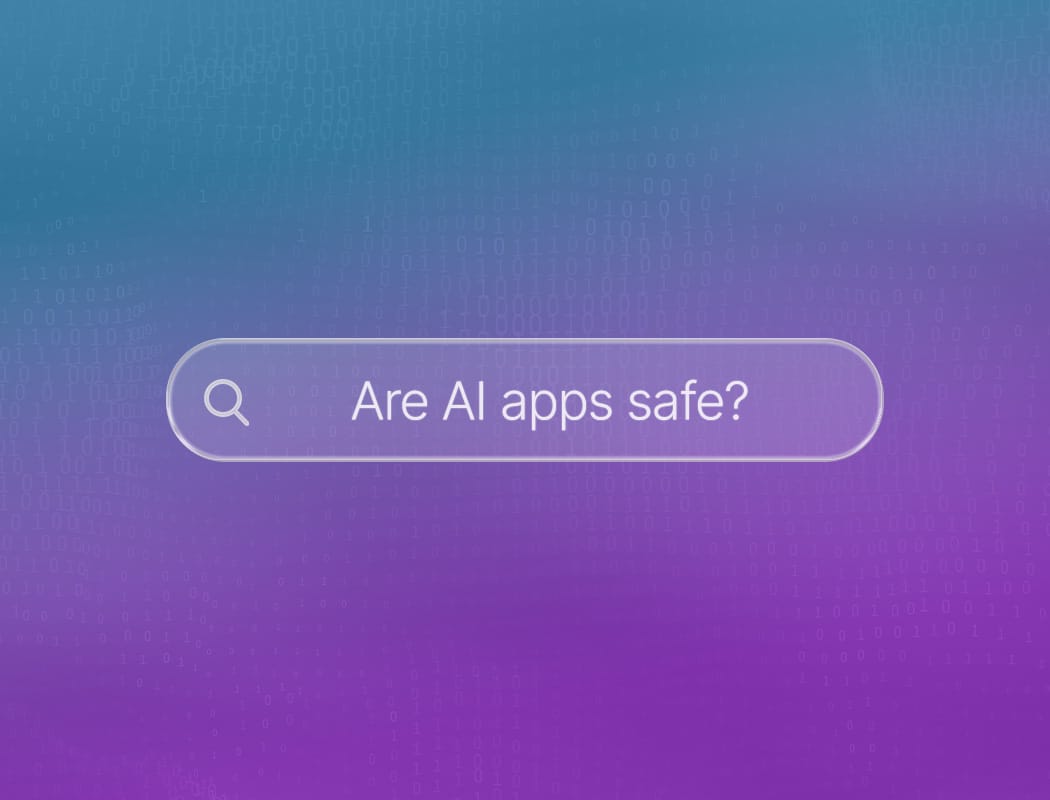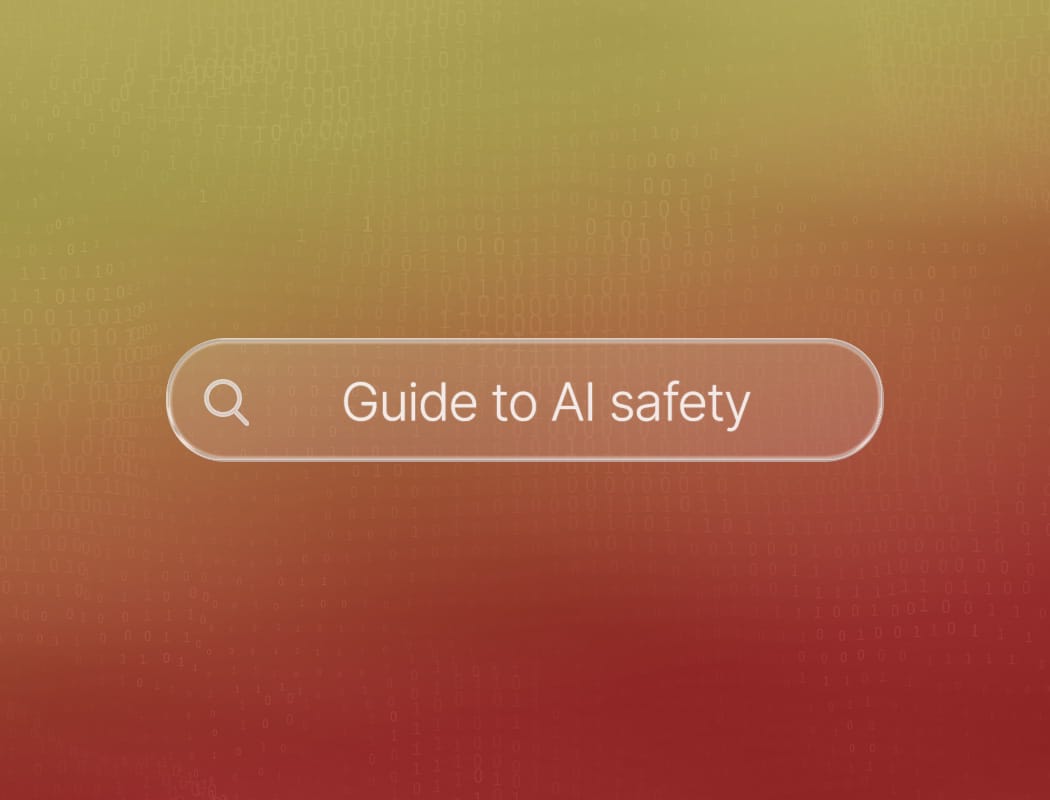Are AI apps safe?
Artificial intelligence apps are everywhere now. They help us write emails, edit photos, and even manage our schedules. But as these tools become more common, it’s natural to wonder: are AI apps safe?
The answer isn’t simple. Some apps are built with strong security in mind, while others may cut corners. It all depends on how the app is designed, what data it collects, and how that data is stored or shared.
Let’s take a closer look at what makes an AI app safe or risky.
Data privacy matters most
When you use an AI app, you’re often handing over personal information, sometimes without even realizing it. This could be your name, email address, voice recordings, or even sensitive business data.
Safe AI apps are transparent about what they collect and why. They use encryption to protect your data and give you control over what you share.
Risky apps, on the other hand, might sell your data to third parties or store it in ways that aren’t secure. Always check the privacy policy and look for apps that let you opt out of unnecessary data collection.
Updates and transparency build trust
A trustworthy and safe AI app doesn’t just launch and disappear. It gets regular updates to fix bugs and patch security holes. Developers who care about safety are open about how their AI works and what steps they take to keep users protected. They respond quickly to reports of problems and listen to user feedback.
If an app hasn’t been updated in months or its creators are vague about how it works, that’s a red flag. In the end, staying safe with AI apps means being curious, cautious, and informed.

Which risks are associated with AI apps?
When AI apps become more powerful, they also bring new risks. Some are obvious, like data leaks or biased decisions. Others are harder to spot until it’s too late. Let’s break down the main risks you should know about when using AI apps.
Data privacy concerns
AI apps need data- lots of it. Every time you use an AI-powered tool, you’re feeding it information about yourself. This might be your name, your habits, or even sensitive details like your location or health status.
If this data isn’t handled carefully, it can end up in the wrong hands. Hackers love targeting AI systems because they often hold a treasure trove of personal information. Even if there’s no breach, companies might use your data in ways you didn’t expect, selling it to advertisers or sharing it with third parties.
The risk? You lose control over your own information, and your privacy could be compromised without you ever knowing.
Algorithmic bias and unfair outcomes
AI learns from data, but that data isn’t always fair. If an AI app is trained on biased information, it can make biased decisions. For example, a hiring tool might favor certain candidates over others based on patterns in past data, even if those patterns reflect old prejudices.
The result is that people can be unfairly excluded or treated differently just because of their age, gender, race, or background. These biases aren’t always easy to spot, and they can have real-world consequences—like denying someone a job, a loan, or even medical care. It’s a risk that grows as more decisions are handed over to AI.
Lack of transparency and accountability
AI apps can be black boxes. You give them input, they spit out results, but how did they get there? Often, not even the developers know exactly what’s happening inside.
This lack of transparency makes it hard to challenge decisions or fix mistakes. If an AI system denies your insurance claim or flags your account for fraud, you might never find out why.
If something goes wrong, who’s responsible? The company? The developer? The AI itself? Without clear answers, users are left in the dark, and trust in the technology suffers.
Overreliance and loss of human judgment
AI apps are designed to make life easier, but there’s a danger in relying on them too much. When we let algorithms make decisions for us, we risk losing our own critical thinking skills.
Over time, people might stop questioning results or double-checking facts, assuming the AI is always right. This can lead to mistakes, missed opportunities, or even dangerous situations. This is especially dangerous in fields like healthcare or law enforcement.
So, the risk isn’t always about the technology failing; it’s sometimes about humans forgetting to think for themselves.
How can users protect themselves when using AI apps?
We have learned about the risks of using AI apps. Personal data can be collected, stored, or even misused if you’re not careful.
The good news? You don’t need to be a tech genius to make AI apps safe. With a few smart habits, anyone can protect themselves while using AI apps.
Read the privacy policy before you click agree
It’s tempting to scroll past the privacy policy and hit “accept.” But those few minutes spent reading can save you from headaches later. Privacy policies tell you what data the app collects, how it’s used, and who it’s shared with.
Look for red flags like vague language or permissions that seem unnecessary for the app’s function. If something feels off, trust your gut.
You might decide not to use the app, or you could adjust your settings to limit what information you share. Remember, your data is valuable, don’t give it away lightly.
Limit the personal information you share
AI apps often ask for access to your contacts, location, or even your microphone. Before granting these permissions, ask yourself: does the app really need this information to work? Only provide what’s absolutely necessary.
For example, a photo editing app probably doesn’t need access to your phone calls. The less you share, the less there is to lose if something goes wrong. And if an app keeps pushing for more access than you’re comfortable with, it might be time to look for alternatives.

Keep your software updated
Updates aren’t just about new features, they’re also about security. Developers regularly patch vulnerabilities that hackers might exploit. By keeping your AI apps and devices up to date, you’re closing the door on potential threats.
Set your apps to update automatically if possible, or check for updates regularly. Don’t forget about your device’s operating system, too. A secure app running on an outdated phone is still at risk. Staying current is one of the simplest ways to protect yourself.
Be cautious with third-party integrations
Many AI apps offer to connect with other services—your email, calendar, or cloud storage. While these integrations can be convenient, they also create more opportunities for your data to be exposed.
Before linking accounts, consider what information will be shared and whether you trust both services. If you stop using an integration, disconnect it right away.
Regularly review which apps have access to your data and revoke permissions you no longer need. Being selective about integrations helps keep your information under your control.
What makes AI apps potentially unsafe?
Now that we have learned about how to keep AI apps safe, we are going to look at the opposite. What makes these apps potentially unsafe?
The answer, again, isn’t simple, but it’s important to understand the different ways AI can go wrong, so you know what to look out for.
1. Unsecure data storage
When you use an AI app, you’re often handing over personal information, sometimes without even realizing it. These apps might collect your name, email, location, or even more sensitive data like your voice or face.
If this information isn’t stored securely, it could be leaked or sold to third parties. Worse, some AI apps don’t make it clear what data they’re collecting or how they’ll use it. This lack of transparency puts your privacy at risk and can lead to identity theft or unwanted surveillance.
2. No responsibility
When something goes wrong with the safety of an AI app, like a chatbot giving harmful advice or a filter misidentifying someone, who’s responsible?
Often, it’s hard to say. Developers might blame the data, while companies point to users misusing the app. This lack of accountability makes it difficult for people to get help or justice when they’re harmed by AI.
It also means there’s less incentive for companies to fix problems quickly, leaving users exposed to ongoing risks.
3. Security vulnerabilities
AI apps are software, and like any software, they can have bugs or weaknesses that hackers exploit. Some attackers target AI systems directly, trying to trick them into making bad decisions.
Others might use unsafe AI apps as a way to access your device or network. Because AI is complex and constantly evolving, it’s hard to anticipate every possible threat.
That means even well-designed apps can become unsafe if they aren’t updated and monitored regularly. Staying safe requires vigilance from both developers and users.





